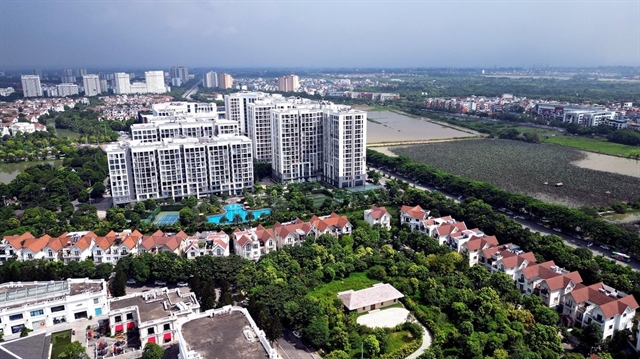To impose personal income tax on a real estate depending on how long it has been owned requires a seamless synchronisation of tax and real estate data.

HÀ NỘI — The Ministry of Finance (MoF) has recently proposed imposing property taxes on real estate transfers based on the length of time properties have been owned, but the Ministry of Justice (MoJ) says the idea is not feasible.
In their latest draft of a proposal to establish a new Law on Personal Income, to replace the current one, the MoF has proposed that the Government impose taxes on income from real estate transactions based on the period of ownership – or holding period – which is the time between when an investor buys and sells a land or property.
According to the finance ministry, this kind of tax instrument has been applied by several countries to limit speculation and so-called 'flipping' or properties, in order to reduce the attractiveness of real estate speculation.
Some countries even impose taxes on profits made from real estate transactions in proportion with the frequency of transactions, and the period between buying a selling the property. The shorter the time – the higher the tax rate, the longer the time – the lower the tax rate.
For example, in Singapore, any real estate that is sold within the first year after it has been bought is taxed at 100 per cent on the difference between the buying and selling prices. After two years, the rate is reduced to 50 per cent, and after three years it is 25 per cent.
In Taiwan (China), transactions made within the two years after buying property are taxed at 45 per cent. Those made between two and five years following purchase are taxed at 35 per cent, between five to ten years at 20 per cent and after 10 years only 15 per cent.
Việt Nam can learn from other countries and use personal income tax to reduce real estate speculation, according to the finance ministry. The tax rates should be studied carefully and reflect the market’s real situation.
However, according to the MoJ, this tax instrument is not yet feasible for Việt Nam, since it is closely linked with land and property policies and databases – which have not been fully developed.
Also, the State management of taxes and land policies have not been in synch, making it difficult to apply the instrument.
The MoF should conduct further study and propose other options for the new personal income tax law, the justice ministry says. — VNS





